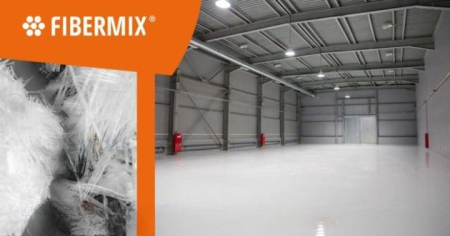
Polypropylene fiber for industrial floors
CONTENTS
- What is Fiber Concrete?
- Advantages of Fiber Reinforcement
- Applications of Industrial Floors with Fiber Concrete
- Installation Technology for Fiber Concrete Floors
- Performance Characteristics of Fiber Concrete Floors
- Economic Efficiency of Using Polypropylene Fiber
The floor is the main element of any building, so it is crucial that it is constructed honestly, efficiently, and safely. This applies not only to the strength of the structure but also to its safety for the health of workers. Most large enterprises today use industrial floors incorporating polypropylene fiber – an innovative material that allows for the creation of a structure that meets all important criteria to the fullest extent possible.
What is Fiber Concrete?
Concrete is the fundamental material in the construction of structures for various purposes, so it is important that it be strong, wear-resistant, reliable, and durable. Previously, to enhance the strength characteristics of the material, special reinforcing mesh and steel fiber were used. Today, the process of reinforcing concrete has been greatly simplified by adding polypropylene fiber to concrete. As a result of mixing fiber and mixture, fiber concrete is obtained.
Fiber concrete is a composite material consisting of a cement matrix with uniformly distributed fiber strands. Polypropylene fiber is a synthetic fiber that is added to the concrete mix to improve its physical and mechanical properties.
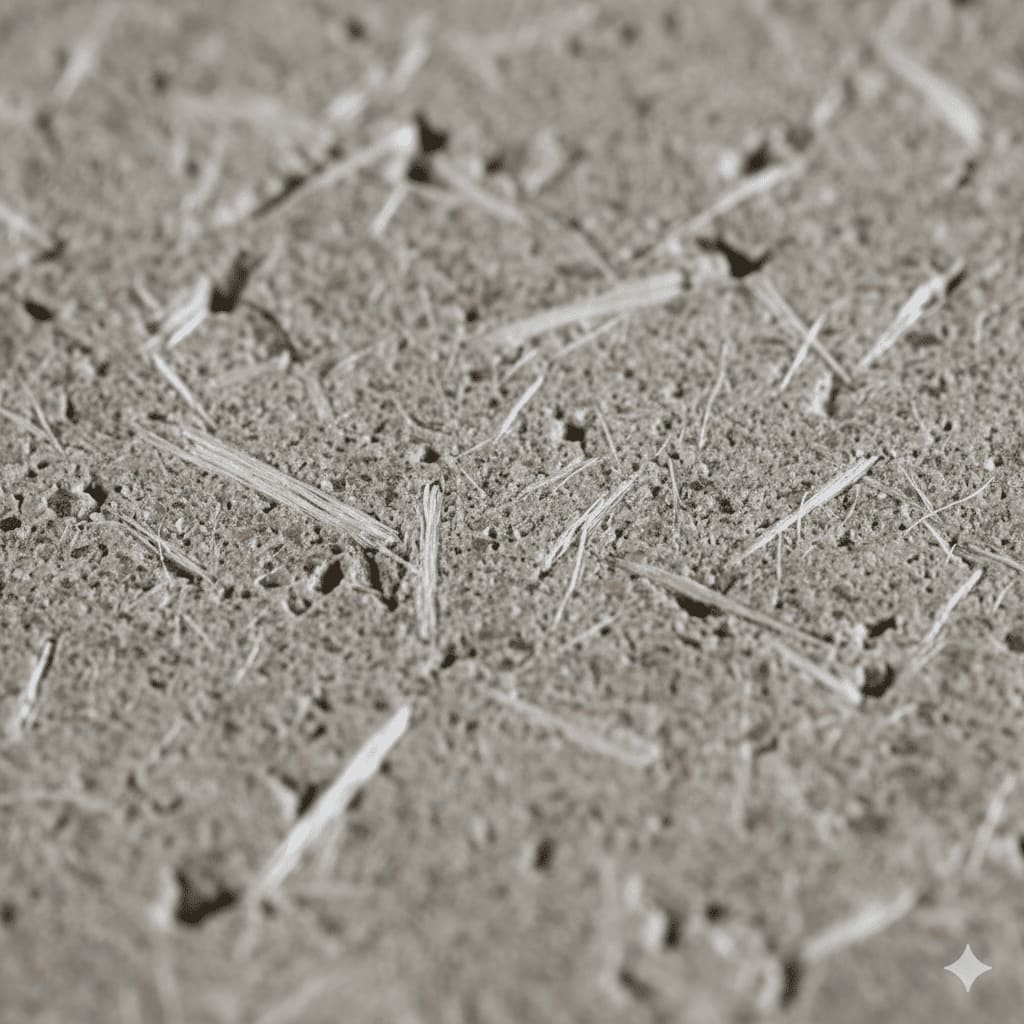
Advantages of Fiber Reinforcement
The obvious advantages of using polypropylene fiber for industrial floors instead of traditional steel mesh are lightness and speed. Strengthening with fiber does not require additional time – fibrous material is added directly into the mixing process. Thus, the concrete floor layer does not require additional laying of the reinforcing mesh, as it contains reinforcing fiber.
Key advantages of fiber reinforcement include:
- Increased tensile and flexural strength
- Enhanced impact resistance
- Reduced shrinkage deformation
- Improved crack resistance
- Increased frost resistance and water impermeability
- Enhanced abrasion resistance
Applications of Industrial Floors with Fiber Concrete
As a rule, industrial floors using polypropylene fiber are extremely effective in large trading floors, factories, terminals, and car services. The concrete layer reinforced with fiber is able to withstand significant loads. Bending and tensile strength are greatly increased. Also, fiber reinforcement helps to avoid the harmful effects of cracks that lead to the destruction of concrete.
Applications of fiber concrete industrial floors include:
- Warehouse complexes and logistics centers
- Production facilities and factory premises
- Parking structures and garage complexes
- Shopping centers and hypermarkets
- Aviation hangars and terminals
- Agricultural facilities
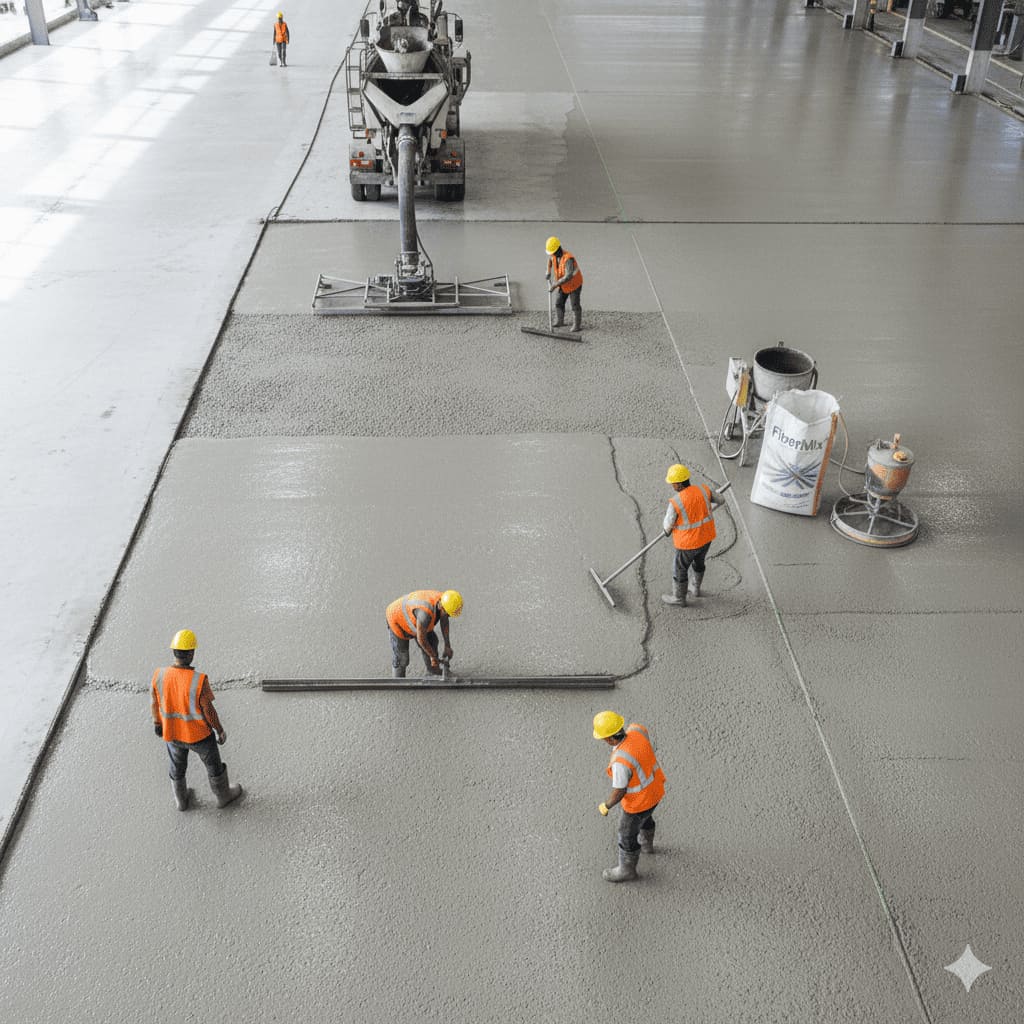
Installation Technology for Fiber Concrete Floors
The process of installing industrial floors using polypropylene fiber includes the following stages:
- Subgrade preparation: leveling, compaction, and waterproofing
- Installation of perimeter isolation strips
- Preparation of fiber concrete mix with the addition of polypropylene fiber
- Placing and leveling of the fiber concrete mix
- Compaction of the mix using a vibrating screed or laser screed
- Surface finishing with power trowels
- Application of final coating (if required)
- Cutting of contraction joints
- Curing of concrete during the hardening process
Performance Characteristics of Fiber Concrete Floors
Industrial floors based on innovative technologies using polypropylene fiber are several times superior to traditional structures in terms of performance. They are able to serve for decades without additional preventive examination and restoration.
Key performance characteristics of fiber concrete floors include:
- High wear resistance and abrasion resistance
- Increased impact strength
- Resistance to dynamic and static loads
- Minimal dust formation
- Chemical resistance
- Fire safety
- Durability (service life of over 30 years)
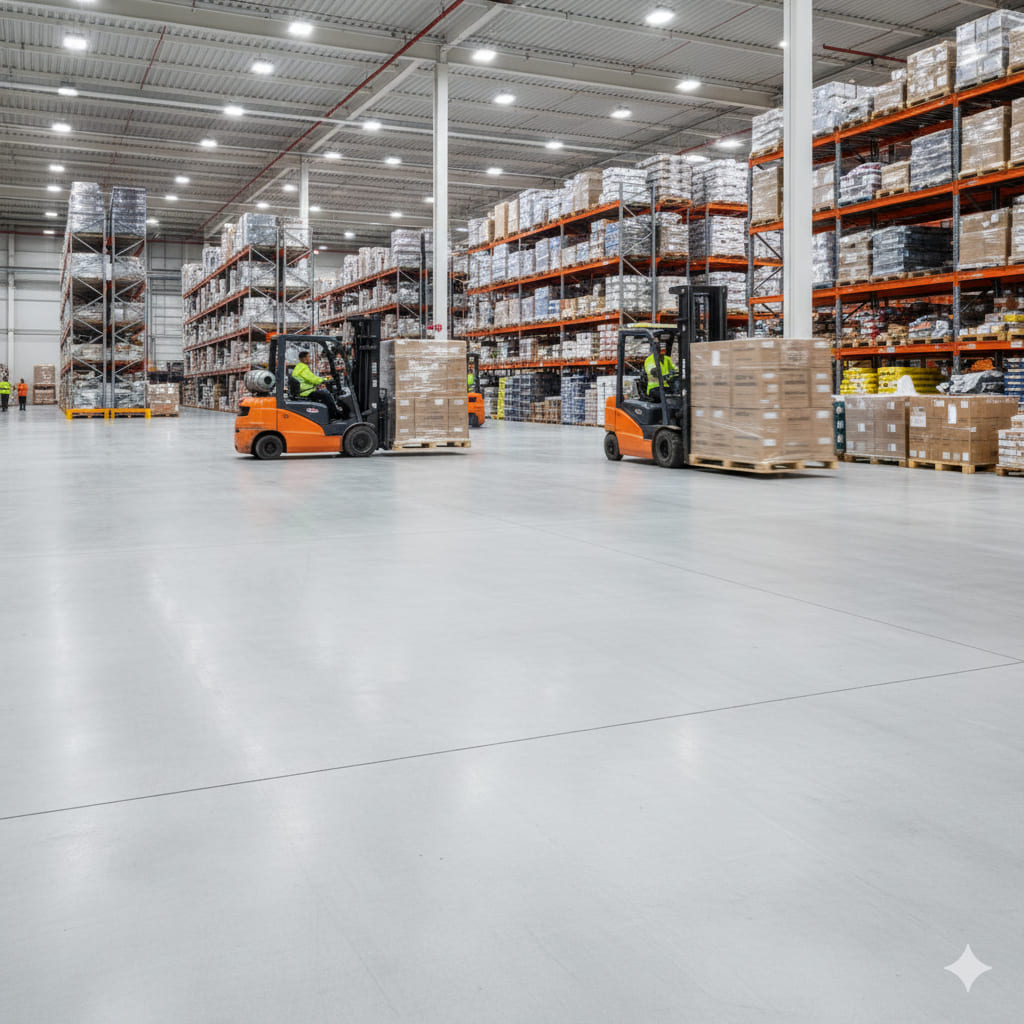
Economic Efficiency of Using Polypropylene Fiber
The use of polypropylene fiber in industrial floors provides not only technical advantages but also economic efficiency:
- Reduced labor costs for laying reinforcing mesh
- Decreased thickness of the concrete layer without loss of strength characteristics
- Shortened construction time
- Reduced repair and maintenance costs during operation
- Extended intervals between repairs
Our company recommends fiber of trademark FiberMix® for pouring industrial floors as the only right decision!
In conclusion, the use of polypropylene fiber in industrial floors is a modern, effective, and economically viable solution that ensures high quality and longevity of the structure. The application of fiber concrete allows for the creation of reliable and safe flooring that meets the highest standards of modern industrial construction.
Recommended products
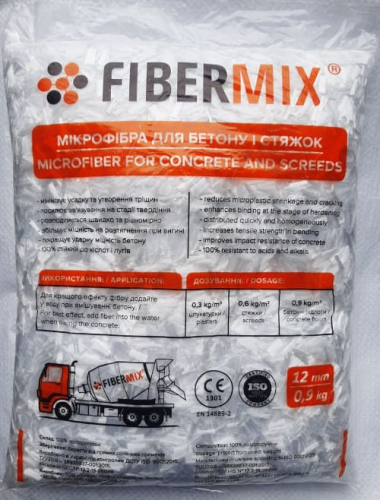 |  |
| Fibermix Microfiber | Macrofiber PolyMesh |